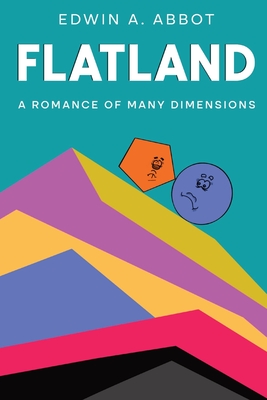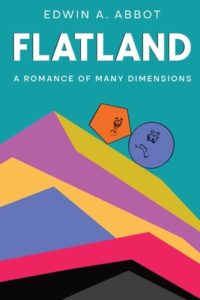Section 17: How the Sphere, having in vain tried words, resorted to deeds
bySection 17 begins with a moment of mounting tension between the narrator and the enigmatic visitor known as the Sphere. No longer relying on explanations or logic, the Sphere resorts to action to make his point. The narrator, still trapped in the rigid perceptions of Flatland, violently presses his angle against the mysterious guest, only to find that the stranger slides away—not to the sides, but upward, vanishing into a realm beyond his comprehension. This physical impossibility deepens the narrator’s confusion and dread, setting the stage for a dramatic demonstration that defies the known laws of his two-dimensional world. The Sphere then attempts a direct method to open the narrator’s mind: not with philosophy, but with undeniable deeds. The visitor’s approach signals a shift from persuasion to revelation, from words to acts that transcend the nature of Flatland itself.
In a powerful and surreal display, the Sphere demonstrates his abilities by retrieving a locked object from a cupboard—one the narrator knows to be sealed and secure. Without touching the doors, the Sphere passes through and emerges holding a ledger, proving he can bypass material boundaries. This act shatters the narrator’s notions of security and spatial reality, suggesting that what he believes to be solid or real may only be an illusion formed by limited perspective. As the tablet reappears on the floor, the narrator is left horrified and questioning the boundaries of his world. For readers, this moment emphasizes how new knowledge can feel invasive, even threatening. Yet it also shows that truth sometimes needs to be experienced rather than explained, especially when the mind resists unfamiliar concepts.
The Sphere continues, offering a broader view of Flatland from his elevated position, illustrating how the higher one ascends, the more one sees. From above, he observes families, theaters, and studies all at once—revealing a vision of life unimaginable to a Flatlander. He implies that this insight is available to anyone willing to move beyond fixed perceptions. The message here is profound: growth often means stepping beyond what is visible or familiar. The narrator, however, cannot yet reconcile this perspective with his lived experience. Instead of wonder, he feels threatened, even violated, when the Sphere gives him a sharp pain to prove a point. This sensation is not just physical—it is symbolic of how painful it can be to expand one’s understanding beyond long-held truths.
Despite the ache left behind, the narrator refuses to accept the Sphere’s reality. The very idea that someone can intrude upon his being so effortlessly makes life under such power intolerable. Rather than embracing the possibilities of a new dimension, he reverts to his instinct for control, attempting again to physically subdue the Sphere. This desperate act reflects how people often resist ideas that challenge their worldview, even when faced with undeniable evidence. His cries for help represent a call for the familiar, hoping others will validate his sense of normalcy. In truth, it’s not the Sphere he’s fighting, but the collapse of his intellectual certainty. The Sphere’s response—a mix of disappointment and urgency—shows that enlightenment cannot be forced; it must be chosen, even if reluctantly.
As the confrontation reaches its peak, the Sphere’s body quivers—a sign that even he, with all his superior knowledge, feels the strain of this impasse. He mutters that the narrator must either accept reason or something more drastic must occur. This signals a critical turning point where persuasion may no longer be enough, and transformation must take a different form. For readers, this tension mirrors real-world resistance to new paradigms—whether in science, philosophy, or personal growth. The challenge lies in breaking through entrenched thought patterns, and sometimes that means enduring discomfort or confrontation. The Sphere’s frustration suggests a universal truth: those who bring change often face resistance not because their ideas are flawed, but because they unsettle the status quo. In this moment, Flatland becomes a mirror for the human struggle with progress, perception, and the fear of the unknown.


